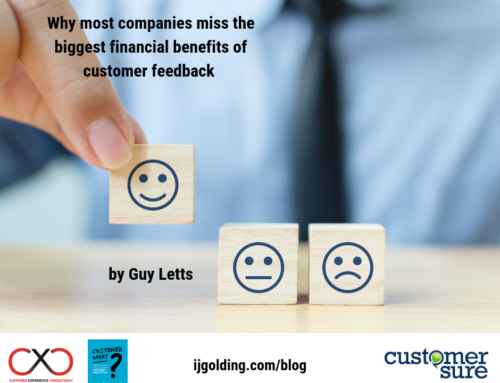
I am about to say something that I rarely do in public these days (I bet that got your attention!). I am a Lean Six Sigma Master Black Belt. There…..I did it. To those that do not know what this means, you are probably wondering what on earth I am on about. To those of you that do, you may be thinking ‘so what’. Please allow me to explain.
Over the weekend I had a little time to review my Twitter feed. I have been following a very clever man by the name of Ted Coine (@tedcoine). Ted describes himself as a ‘business heretic’ and is named as a Forbes Top 10 Influencer. With over 270 thousand followers, his excellent musings and submissions from guest authors get to be seen by many people all over the world. This particular weekend, a blog post from one of his network of experts, Dr Andrew Smart, caught my eye. This is the tweet that got my attention:
A top post of 2013 – Six Sigma Is Draining Employees' #Creativity http://t.co/7NbO08oSCn #humanbiz #leadership
— Ted Coiné (@tedcoine) September 15, 2013
Hopefully you will all take the time to read the blog post he refers to, especially if you have been involved in or around business improvement/customer experience programmes that have used Six Sigma methodology in some way. The post is excellently written, and essentially see’s Andrew make the case for Six Sigma ‘programmes’ limiting employees and organisations abilities to be creative and innovative.
Before I get in to the meat of why I am telling you about this, I need to provide a little bit more background. I first became exposed to Six Sigma in 1998. I became indirectly involved through my wife Naomi. Naomi was working for GE, and like many business professionals around that time, was involved in the Jack Welch Six Sigma machine. Naomi was a Black Belt in a GE business looking at improving finance processes. She knew straight away that the methodology would appeal to me. Just over a year later, and completely coincidentally, I found myself taking up a Black Belt role in a different GE business.
We never intended to be a six sigma ‘couple’ – it just happened. Whilst Naomi moved on to other things after her Black Belt stint, I, as Andrew alludes to in his post, became hooked. I can categorically state that GE and its development of me as a business improvement professional changed my career – and for the better. It was the first time in my working life that something was explained to me that actually made sense. A set of tools and principles to help improve what we do as a business to better meet the expectations of our customers. It sounded so obvious, and I wanted to be a part of it. Six Sigma and its later association with Lean principles have underpinned everything I have done in business ever since. Now, as a customer experience professional, this is still the case. What I have learned from the methodology, is fundamental to my approach in improving the customer experience. So if that is the case, why am I so afraid/ashamed/unwilling to even let people know about it?
To answer this question, we have to delve deeper into what happened at GE and other corporations around the world in the nineties and early noughties. Jack Welch’s motivation behind the implementation of six sigma across the GE empire was in my opinion absolutely bang on. In their fast-moving industries and environments, it was essential that every business was able to understand what customers wanted, and how capable existing processes were of giving it to them. Six Sigma as a methodology ticked all the right boxes. Not only did the methodology work (it delivered millions and millions of dollars worth of PROVEN financial benefits, as well as happier customers), it also acted as an excellent management development programme.

Jack Welch
However (there is always one of those), there were many, and I mean many, issues with the way GE deployed their six sigma programme. In my opinion, it is the legacy of the deployment, and many similar ones that used the GE model, that has left an indelible stigma that many trained Six Sigma professionals find hard to shake today. People knew that to get on in GE, you needed six sigma certification. They knew that the better the certification, the more likely it would become that you may be eligible for a senior role. Likewise, a trend commenced whereby ex GE professionals applying for new jobs would cite all sorts of six sigma achievements and certifications on their CVs. In reality, much of what they claimed had never been achieved. When I was deploying a six sigma programme at a UK retailer, I reviewed countless CVs when helping to bring in new resource. At least 70% of the time, the person that came in for interview was nothing like the person described on the CV. All of this was helping to damage the reputation of both the methodology and the ‘real’ six sigma protagonists.
Not everyone saw the benefits of becoming a ‘belt’. GE’s approach in 2000/2001 was one of ‘you have no choice’. Jeff Immelt, on taking over from Jack Welch, decreed that a minimum percentage of employees in every GE business (I forget what the percentage was), MUST be certified as a Green Belt, Black Belt or Master Black Belt. At the time, I was a full-time six sigma trainer for GE’s reinsurance business. I trained hundreds of people all over the world who were taking on the knowledge because ‘they had to’. This led to many disaffected business professionals who just did not believe in the method – they were being forced to learn it and conjure up projects that were often of little importance. As they have moved on from GE, they can comfortably dismiss it as something of no value.
Today, the ‘big bang’ deployment approach a la GE is rarely seen. Hundreds of people doing attending training course after training course; conducting pointless project after pointless project, was never going to be sustainable. The big deployment made everyone believe that you had to follow a completely prescriptive framework for utilising six sigma methodologies, and every tool in the box had to be used. It made the method look complicated, time-consuming and frankly very irritating.
The sad thing is, that whilst I completely agree with what I have just said, I still believe that six sigma is of HUGE benefit to organisations all over the world. If it is applied correctly, by the right people in the right way, it can transform the effectiveness (capability in six sigma speak) of your business processes. When Ted says that the use of ‘process’ is wrong – I cannot disagree with him more. Everything we do is a process whether we like it or not. Every customer journey is enabled by a series of underlying processes. It is our ability to use the method and tools that comprise it appropriately that is the key. A Six Sigma expert is not one that can fill out a set of spreadsheets and tick a number of boxes. An expert is one who can use what is needed at the right time to have the greatest impact. Sometimes the application of the skillset can be remarkably simple.

I do not tell people that I am a Six Sigma professional because they do not really need to know. I do not want them ‘thinking’ the wrong things about me. The astute business leader will want to know why I do the things I do – I may then tell them where a lot of my actions come from. Six Sigma changed my life – it is something will always thank GE for. Never write off a method that has delivered so much value to so many people and so many businesses. If you disagree, you need to talk to people who applied it correctly.






Very interesting. The salient point in both articles is the phrase “if applied correctly”. This is also true for most other processes that come along to improve business, Health & Safety, etc. If used as the inventor intended then they work well and do improve businesses, but they often get into the hands of people (zealots) who try to apply the principles to everything in a business. This is why they fall into disrepute with so many people who can see that their colleagues start to use the principles of whatever ‘big idea’ as a means of promoting their career rather than as a means of improving the company performance (not mutually exclusive, I realise, but frequently true).
On a lighter note, this quote – “Likewise, a trend commenced whereby ex GE professionals applying for new jobs would cite all sorts of six sigma achievements and certifications on their CVs.” – reminds me of an episode of Star Trek: The Next Generation where the two contenders to become the next Klingon leader had to recite all their achievements in battle!
Thank you for taking the time this fabulous response Peter – it is very much appreciated. I love your Star Trek analogy as well!
Great comment about becoming the next Klingon leader, it is officially posted in my office – if you don’t mind.
There is definite value in becoming 6s certified. It shows an interest in keeping an updated resume. It may also show an openness to learning. Now days, it is hard to find people who are open minded. My issue with this whole lean/kaizan/5s/6s trend, is that most every client I meet is a green or black belt. This tells me, that the competitors of my clients are most likely certified with a black belt as well. I became black belt certified online over the weekend – and didn’t find the process very enlightening. Yes, it is good information to ponder, however, YES-IT IS A HOAX TO PAY FOR CERTIFICATION when you can just read about the philosophical methodology online or in a book. People are paying thousands of dollars to receive a certificate from one of 100 different certificate providers.
[…] Shhh! Don’t Mention Six Sigma – The Truth Behind the Stigma “I am about to say something that I rarely do in public these days (I bet that got your attention!). I am a Lean Six Sigma Master Black Belt. There…..I did it.” More… […]
[…] When I started the GE chapter of my career, it was in the last few years of the Jack Welch era. One of the most transformational business leaders of all time, the influence he exerted on one of the biggest organisations on the planet has very much shaped who I am as a business professional today. Jack Welch introduced Six Sigma to GE – the much maligned process improvement methodology was a huge part of Jack’s plan to turn the multi-national conglomerate into the most efficient customer focussed set of businesses in the world. The methodology is ‘much maligned’ as many have misinterpreted both its true application, and experienced inappropriate six sigma deployments – you can read more about my views on the stigma behind Six Sigma here https://ijgolding.com/2013/09/16/shhhhh-dont-mention-six-sigma-the-truth-behind-the-stigma/ […]
[…] When I started the GE chapter of my career, it was in the last few years of the Jack Welch era. One of the most transformational business leaders of all time, the influence he exerted on one of the biggest organisations on the planet has very much shaped who I am as a business professional today. Jack Welch introduced Six Sigma to GE – the much maligned process improvement methodology was a huge part of Jack’s plan to turn the multi-national conglomerate into the most efficient customer focussed set of businesses in the world. The methodology is ‘much maligned’ as many have misinterpreted both its true application, and experienced inappropriate six sigma deployments – you can read more about my views on the stigma behind Six Sigma here https://ijgolding.com/2013/09/16/shhhhh-dont-mention-six-sigma-the-truth-behind-the-stigma/ […]
[…] When I started the GE chapter of my career, it was in the last few years of the Jack Welch era. One of the most transformational business leaders of all time, the influence he exerted on one of the biggest organisations on the planet has very much shaped who I am as a business professional today. Jack Welch introduced Six Sigma to GE – the much maligned process improvement methodology was a huge part of Jack’s plan to turn the multi-national conglomerate into the most efficient customer focussed set of businesses in the world. The methodology is ‘much maligned’ as many have misinterpreted both its true application, and experienced inappropriate six sigma deployments – you can read more about my views on the stigma behind Six Sigma here […]
[…] When I started the GE chapter of my career, it was in the last few years of the Jack Welch era. One of the most transformational business leaders of all time, the influence he exerted on one of the biggest organisations on the planet has very much shaped who I am as a business professional today. Jack Welch introduced Six Sigma to GE – the much maligned process improvement methodology was a huge part of Jack’s plan to turn the multi-national conglomerate into the most efficient customer focussed set of businesses in the world. The methodology is ‘much maligned’ as many have misinterpreted both its true application, and experienced inappropriate six sigma deployments – you can read more about my views on the stigma behind Six Sigma herehttps://ijgolding.com/2013/09/16/shhhhh-dont-mention-six-sigma-the-truth-behind-the-stigma/ […]
There is a stigma around lean and six sigma, mostly because this is driven by senior leaders who may not understand the underlying thought around continuous improvement. The tools sets and approach try through standardization, training and certification much like an MBA to raise the bar of the employee population to improve core business processes. The culture and vision for this must be owned at the top of the organization and carried by operational managers throughout the organization. I thought this was an interesting article on the organizational concept that drive some of the thought process discussed.
https://haldenzimmermann.wordpress.com/2013/12/20/continuous-improvement-companies/
Many thanks for taking the time to read my post and share the article – very useful!
Hi Ian, Thank for writing this article. I am very late to finding it …but better late than never ! In my opinion Your perceptions of how Six Sigma is being unfairly criticised and rejected are spot on. Your explanations for why this has happened ( and still happening ) also ring very true to my experiences.
The one additional reason that you did not mention, but I think has a great deal to do with the ‘mis-trust’ and cynicism is simply the name ‘Six Sigma’ and its origins from the statistical Capability analysis in electronics manufacturing at Motorola in the late 80’s Then add in the Motorola concept of the 1.5 sigma shift and ..’Poof’ most of your audience just disappeared !! And anyone left loves to pick holes in the 1.5 sigma shift idea…and have every right to did so too !
What trainers and authors need to get across is to separate the name ‘Six Sigma’ from its statistical origins and educate people that its DMAIC scientific method, root-cause-analysis tools, Process optimisation and control tools, and Cultural change ( customer focus, building consensus, worker as problem solver, removing operational silos etc ) from the Shop floor all the way to the Board Room is what Six Sigma is really about.
Thank so much for your candor. I work for a very large company and it seems that where six sigma can bring about some change or even good, it is not the one size fits all magic fix. Our company provides a service there for the product we are trying to sell is well, us. Our daily objective is to add to our customer base while maintaining our customer base. No two customers are the same. The variables we are trying to eliminate are the very customers we are desperately trying to attract, add or retain. Remember the animated movie “Monsters Inc”? They built a machine to suck the life out of the kids to get the much needed product. Only to find out in the end that laughter from creativity produced 10 times the energy! In many ways formulas like lean, six sigma, MSOC and the host of others has done the same. They do have a place and perhaps have worked well in certain areas. But from what I have experienced trying to make it work becomes the goal and we are gonna make it work by golly. It becomes forced and rigid. Demanded! Make the metrics or else. Mean while forgetting about the human side of thing…you know, the customer?
Jim well said. I agree with your ending note ” It becomes forced and rigid. Demanded! Make the metrics or else. Mean while forgetting about the human side of thing…you know, the customer?”. I work for a multinational telecommunications company. I have a CMA and a PMP, I am considering taking the Six Sigma, what I am battling with is, is it still relevant? does it truly stifle creativity? I know we talk a lot about “thinking outside the box”, but I believe the assertion must be “thinking creatively within the box” because all solutions have a framework or platform or a certain logic that affirms the solution, no matter the idea I think a certain concept underlies it, and Six Sigma could be that concept, fairly. With that said and all that said about Six Sigma, what I am not sure of, is if the methodology still meets present needs or the curriculum has been updated to suit modern environments. If any of you have comments to this please share with us. I would really appreciated. Thanks in advance
Hi Prince – personally I think it IS still relevant, if used in the right way! I regularly interact with organisations who desperately need process improvement competencies – but do not have them. If you want me to out you in touch with someone who can advise you on the latest teachings, please email me at ian@ijgolding.com and I will introduce you.
Nice article, i am from chemical research domain, dealing with innovative chemistry. I was thinking of going for 6sigma training / certification. Your article really clears the fact that its totally based on the individual who apply the principles properly based on the organization goals set.
Please guide me in understanding and exploring the utility of 6 sigma effectively. For a person like me with 20+yrs experience and a doctorate. working with a good indian company at middle management level. How it will impact my career.
Ian, I maybe a few years late reading this article, but its great and still massively applicable today.
There were so many head nodding moments:
“Six Sigma changed my life”
“Everything we do is a process whether we like it or not.”
“It is our ability to use the method and tools that comprise it appropriately that is the key.”
“An expert is one who can use what is needed at the right time to have the greatest impact.”
Thanks again.
Andrew Leong
http://www.tqmi.co.uk
Hi Andrew – it is never too late!!! So glad my thoughts resonated with you!
Ian,
I read your article with a smile on my face. Sadly I was a process improvement obsessive up until 2008 when the company that I had worked for 16 years lost 40% of it’s business overnight and was forced to close. I had an opportunity in their last couple of years to go on sigma courses but resisted on the grounds that I was producing continued improvement year on year by doing what I was doing and that I didn’t want to brainwashed into a process that stifled my creativity. I have been obsessed with improving things all of my life, to me it is not so much a process as a way of life. I am constantly improving my improvements and find that this is true of pretty much everything. When you improve a continuous process you find that it usually has an effect on an other area which then needs improving ( much the same as in the theory of constraints) Most of my eureka moments came from collecting data to point me in a general direction and then personal observation and interrogation of process operators. I had a gift for sorting out problems!
I said sadly earlier on for two reasons, one because of the loss to many people of their livelihood but also the loss to myself. I have since 2008 been unable to get a position as an improvement engineer, primarily I believe because of my age but also my lack of formal qualifications. Specifically six sigma. I have spoken to a few experts who believe that accreditation would be a waste of time without experience of using it. As a result I have not pursued this avenue.
The point I make is, despite your thoughts about six sigma, it is the key to opening the door which I find firmly locked. That piece of paper is your ticket to the job that you want.
Thanks for your time.
Eryl Jones
Hi Eryl – thank you so much for taking the time to read and respond to my post. I would love to put you in touch with a very close associate of mine – he is as passionate a process improvement professional you and I – he runs a successful consulting business with very experienced and mature professionals – just like you!
If you are interested, email me at ian@ijgolding.com and I will connect you to him.
Ian,
Thanks for a brilliantly written article. I enjoyed reading it. I know my response might be quite late in the day since the article was written but I am so happy that it came just at the time when I needed to know about Six Sigma the most. Better late than never!
I am at the crossroads of my career where my organization is in the process of initiating LEAN methodologies and LEAN Centre of Excellence. With the intention of been far ahead of the game and learning the methodologies, I am exploring institutes or training centres from where I can get a formal certification. With my research, I have seen there are hundreds and thousands of institutes all over the world who offer from 2 days to 12 days of Lean Six Sigma Green or Black Belt training and charge you a fortune. Seems like it is the most lucrative training on offer for many. My only concern with it is the credibility of such institutes and how do I know which one is the best. Do you have any recommendations as such on where I could acquire the essential skills and knowledge on LSSGB?
Thanks Ian in advance. I am a convert after reading your article.
Regards,
Jessy Abraham
Hi Jessy – thank you so much for your very kind words. You are absolutely right to say that there are a plethora of resources available to advance knowledge in the area of process management and improvement. The best resource I have come across in my years (based on experience, actionability, expertise and results) is a chap called Colm Doran and his team at Paloma Consulting – real, genuine, brilliant process people (in my opinion!). You can find out more about them here – http://www.palomaconsulting.com/
Thanks for the comment, it is greatly appreciated. Well-written and insightful.
I will more than gladly take you up on that offer for a meal and wine if you are ever on this side of the planet 🙂
Totally agree, very similar to my recent Blog post – ( http://www.sixsigmaindubai.org/six-sigma-dubai/six-sigma-certification-dubai/ )
Good discussion. Thank you.
Thanks for the review and all information given in this article.
I’m in a career point when I need a qualification regarding improvement and project management. I have done a few online however I do not feel is enough to take me somewhere that I can Feel full filled. I am learning as I come across projects but without a base on how to approach them in a professional way therefore I am discovering failures too late in the process (learning from trying-error and trying-success). I feel I need a training and I have always wondered about Six asigna and it there is others in the market which could be beneficial for my current and my future professional development.
We had a 20M dollar earning proj for an entire business in amsterdamn. It was deployed successfully and it is actually an ERP implementation (in house built not like the crappy SAP). Before the post sales, we thought about on how to hide the real design, idea and algorithm of the entire business workflow. Then one ingenuous came from sales team, “lets sell it as a six sigma project”… So in short what happenee, our client adopted six sigma in their company. They made their entire data warehousing process like a manufacturing process.. then they always come back to us due to their business failures and we are the one who fix it ansld says “this is hownyou apply the method” stuffs..
Depends on if you use it for “good or for evil”… Just kidding. I find the question determines the outcome. If you use this, or any other “improvement” model/tools with the intention of “how do we do this job with fewer people/resources/money” you’ll find an answer. If you go at with the question of “how much people/resources/money do we need to do the job” you’ll get a different answer. TQM got a bad reputation (in the USCG when I was using it) for being bad because we just kept amputating more and more of our needed resources and funding, when we were already short staffed, under-funded and had one of the oldest maritime fleets in the world. I found the tools I learned under TQM were extremely effective. When used right.
I wanted to get Lean/Six Sigma training, but seems like every time I find a job that wants those skills, they want someone with expertise in a field, like pharmaceuticals, manufacturing, etc. What I liked about using TQM is they wanted folks to know nothing about the issue, and have no skin in the game. That way we could remain neutral to the content and just focus on the tools/techniques of facilitating the discussions without trying to push an outcome. I found that a very helpful aspect of working with assorted teams and meetings. What they came up with had no impact on my work. Something to be said for that.